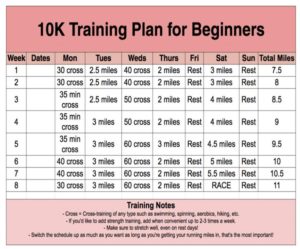Saturday’s Run for Your Life outdoor workout will begin at 8:00 am in front of the George Rosenfeld Center for Recovery (GRCR) on Wards Island. Once again don’t forget to join us on Strava – this week’s running goal is to maintain base pace running for 6 miles. Also, as promised here is a 10k training schedule suitable for beginner and intermediate runners. Please feel free to contact me with any questions about training at amatthews@odysseyhousenyc.org.
Tips for Recovery: To Speed Up Recovery, Add This Ingredient
You are probably well aware of the sad fact that, according to the National Institute of Drug Abuse (NIDA), the first-year post-treatment relapse rate in the US is 40-60%. Common approaches to treatment include medication, and various types of therapy: CBT, DBT, Motivational Enhancement Therapy, Family Therapy, 12-Step programs, and more. These are all effective tools, backed by years of experience and evidence in the medical literature. Yet, despite the use of these well-vetted tools, first-year post-treatment relapse rates are still high. What is missing?
Drug dependence produces significant and lasting changes in brain chemistry and function, yet the traditional therapies don’t attempt to reverse these changes. These therapies offer clients the skills, insights, and knowledge to begin life in recovery; but they don’t help clients develop the brains which are needed to implement these tools. People often leave treatment with brains that are too structurally, functionally, and chemically impaired by their substance misuse to support the learning and memory needed to practice new habits and build a new life.
Brain repair does happen with time. New neurons grow. These neurons form new connections with each other. The neural pathways associated with old habits weaken as those associated with new habits strengthen. However, this can take months or years for the average person. But it doesn’t have to be that way.
Regular moderate aerobic exercise increases the production of BDNF, Brain-Derived Neurotrophic Factor. This is the protein that promotes neurogenesis and neuroplasticity (new cell growth and new connections among these neurons) throughout the brain, including those areas responsible for learning and the formation of new memories. If you’d like to help your clients process and retain more of the valuable insights and lessons gained from therapy, encourage them to speed up their brain healing.
All it takes is some regular exercise. The BDNF will do the rest.
Source: Strides in Recovery newsletter
Coach Andre tips:
In my experience as a long-distance runner and being a responsible family man, I know that one of the recipes for maintaining sobriety is working on self, being committed to your goals, and staying consistent. “It’s a New Day”


